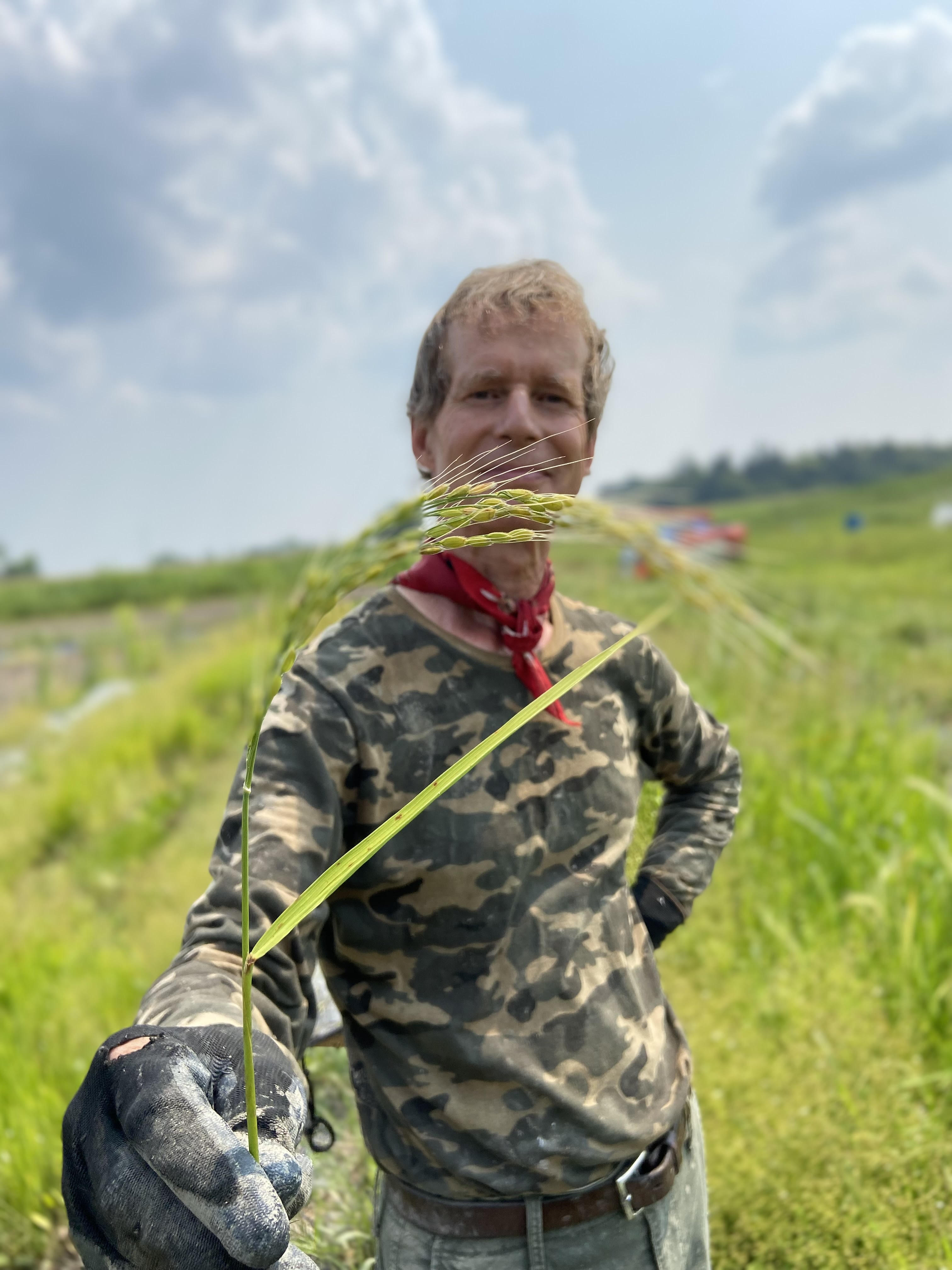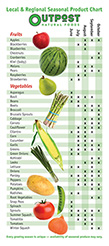Local Vendors

“I’ve always appreciated farmers’ hard work, but even more now that I’m actually farming myself.” Marquette Biological Sciences professor Michael Schläppi may have started his farming journey in the classroom, but from April to November, you can find Schläppi at the Mequon Nature Preserve germinating seeds, coaxing machinery to work, setting up hoop houses, tilling, planting, putting up critter defenses, weeding, sorting, sweating, and repairing tractors along with another few hundred tasks in his quest to bring Wisconsin’s first-ever cultivated rice crop to market.
“It’s almost too many challenges,” Schläppi tells me as his boots slurp down into a muddy rice paddy on this scorching summer day. “I like problem solving. I try to apply logic to solve things, but sometimes, if it’s too many problems, it becomes annoying. Just this morning the rope on the water pump motor snapped, so I have to go on YouTube and find on how to fix it.”
It’s been a true labor of love for Schläppi since he planted his first rice crop back in 2017. Outpost has been there to witness all of the ups and downs through the years; from the early spring planting to the sweltering summer growing season and to the crisp harvest days of the fall. In 2020 we were the first store to sell his commercially grown Red Stone Rice [sold under the name “Wisconsin Brown Rice (Grown in Mequon, WI)” at Outpost]. It’s a rice you’re not going to find being grown anywhere else in this part of the world.
“It’s from southern Russia, and nobody in the states grows this kind of rice, so it’s very unique. The flavor is very different from most of the rice you find in the states, like the Arkansas brown rice or California brown rice, which is more of a Japanese style rice. This rice has a distinctly nutty taste.”
So, you might be asking yourself, “How does a subtropical grain usually associated with warm climates grow in our chilly state?” The answer lies in trial, error, and science. Funded by grants from Marquette University and the US Department of Agriculture, Schläppi’s research identified a high-yielding Southern Russian rice variety (with the very Russian name of Krasnodarskij 3352) that could withstand Wisconsin’s decidedly un-tropical weather.
“It’s the genetics and genomics of cold tolerance in rice. There are many genes involved and we can do sequencing on the rice, and with those genetic markers we can phenotype the rice so we can challenge the rice with different cold stresses, and if you do this with a couple hundred varieties and you know their genetic makeup, you can actually map regions.” All of that is just a fancy way to say, “It works here.”
Schläppi’s rice is unique in not only its taste, but in how and where it’s grown.
“The Mequon Nature preserve is all open to the public, so you know where your food is coming from. People can go visit; they can basically check up on you. It’s organic, and you can see that here. It’s not next to a factory that is spewing out toxins, and you can see that we’re not using any chemicals because the weeds are everywhere. The water we do use is healthy and full of nutrients. I don’t even need to use fertilizer because the water is healthy enough. It’s all out in the open, and if people have questions, they can always come and check it out.”
During planting and harvesting season Schläppi doesn’t have to go it alone since he gets help from the Hmong farmers whose vegetable fields surround the rice paddies.
“I’ve partnered with the Fondy Food Center, and about 80% of the farmers are Hmong, who are fantastic farmers. When they heard I was going to be growing rice, they were fascinated because they used to grow rice in Laos or Thailand. Culturally, it was super important for them when we started this in 2017, they involved their grandkids who were born here and had never seen rice being grown, so to show them this part of their culture was very important.”
But in-between those planting and harvesting seasons, Schläppi only has the dragonflies to keep him company as each day he diligently works to bring his crop to harvest.
“It’s a crazy amount of work, and that’s why, when people say it’s expensive, I say you’re welcome to farm with me. I think it gives me an appreciation for food prices, which I think are way too low. The amount of effort that goes into producing our food is enormous for the farmers, and maybe people can learn to value what goes into putting real food on the table instead of just throwing food away.”








